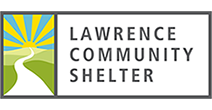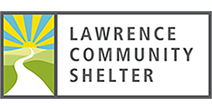FAQs
- What causes homelessness?
- Who can stay at LCS?
- How does winter shelter work?
- How can people seek shelter if they work overnights?
- Do you accept pets?
- How long do people stay at LCS?
- Who can stay at The Village?
- Who can stay in Monarch Village?
- What happens when people leave LCS?
- What does “Housing First” mean?
- What donations do you accept?
- How can I make a difference?
Causes of homelessness include:
- Low Income
- Rise in poverty / wealth inequality
- Shortage of affordable housing
- Lack of affordable healthcare
- Domestic violence
- Mental illness
- Addiction / substance use
- Reduced spending on public welfare programs
- Limited transitional housing or permanent supportive housing
Stereotypes are pervasive and hurtful, often blaming people experiencing homelessness for their own circumstances. In reality, having a full-time job does not guarantee an escape from poverty, personal tragedies occur beyond anyone’s control, and there are many barriers to overcoming homelessness without social support. Click here to read more.
LCS offers a low-barrier adult shelter program. All adults meeting eligibility requirements are welcome to seek shelter at LCS. All guests must abide by program guidelines and sign paperwork to certify that they are currently homeless and eligible for services. All guests are asked to abide by a code of conduct out of respect for others staying in the shelter. Click here to view our non-discrimination policy.
- Am I required to pass a drug test? No.
- Am I required to show an ID or proof of income? No.
- Am I required to pass a criminal background check? No.
- What if I was banned?
Call 785-832-8864 to ask for an appeal or a status update.
LCS can accommodate a maximum of 125 adults overnight. LCS offers up to 100 beds in the Night by Night Program, and 25 beds in the Continuous-Stay Program. Priority is given to Douglas County residents. If a guest has recently moved to Douglas County for work, to be near family supports, or because they are enrolled in a local treatment program, then they may be eligible for services.
Families with children under 18 can find alternative resources for shelter and other assistance on our Family Resource page.
In order to help meet the needs of our community, the Lawrence Community Shelter will be operating the winter emergency shelter and expanding services when temperatures are below 40°F. During cold weather, the maximum shelter capacity will be expanded to 140 beds and guests will not be required to exit during the day any time the outside temperature or wind chill falls below 32°F. Our organization is working with community partners to ensure that no one will be turned away from shelter this winter.
Please bring a copy of your work schedule with you when you arrive at LCS or email it to info@lawrenceshelter.org. The Shelter Manager will determine an individualized check-in and check-out schedule.
Yes. LCS is a pet-friendly shelter. New guests that have not sought services previously due to having a pet must sign a pet agreement and waiver of liability. Guests who use shelter programs cannot bring new pets if they are already receiving services unless the pet provides services for a disability.
All dogs, cats, and ferrets aged 4 months and older must have current rabies vaccination as required by law. If the animal is not vaccinated as required, the guest will have 10 days to obtain proof of vaccination or the animal will not be allowed to return to shelter until documentation is provided. Kennels can be provided for pets if you do not have one. Night by Night guests must check out with their pets at 7 AM.
LCS may ask that a pet be removed if their behavior or health becomes a threat to the safety or well-being of other guests, volunteers, or staff.
All guests in the Night by Night Program must check in between 7-10 PM each night and check out by 7 AM each day. Exceptions can be made for those with overnight work schedules when a copy of the individual’s work schedule is provided. The Night by Night Program is open year-round.
There is no check in or check out time for individuals enrolled in the continuous-stay Housing Program at LCS. Individuals may stay in the Housing Program until a permanent housing placement is found, or for a maximum of 90 days.
The Village prioritizes veterans, older residents age 55+, survivors of domestic violence, individuals with disabilities, and chronically homeless individuals. Individuals with significant criminal histories including violent and sexual offenses will not be eligible for The Village. Pets cannot be brought to The Village unless they are service animals.
Service providers may refer individuals to The Village by filling out a Referral Form at this link.
Monarch Village is reserved for individuals with complex needs combined with high barriers to housing or who face difficulties living in a congregate setting. This may include individuals with disabilities, specialized medical needs, pregnancy, or people who commonly experience chronic homelessness. Qualifying individuals may be referred to Monarch Village by their case manager. At a minimum, a quarter of the units will be reserved for quarantine and isolation in accordance with guidelines relating to COVID-19.
Our goal at LCS is for everyone who seeks housing services to exit to a stable and/or permanent housing situation. However, there are no limitations for use of the Night by Night Program.
The Lawrence Community Shelter embraces the Housing First approach to addressing homelessness. Old-fashioned homeless shelter models focus on a treatment-first approach, prolonging barriers to housing, while a Housing First approach yields better and longer-lasting results of housing stability and improved mental health. Housing First models move people into housing directly from streets and shelters without requiring compliance or participation in treatment programs to determine “readiness” prior to accessing safe and secure housing. Housing First interventions and principles emerge from a specific body of social science research that tells us something important about recovery, wellness, and housing: that people are best positioned for behavioral health recovery and lifelong wellness when their housing is secure.
Please visit our donate page to make a financial donation. To see a list of items that are accepted, select the “DONATE GOODS” tab or visit our Amazon Wishlist. Every bit helps!
Organize a fundraiser, sign up to volunteer, or help advocate for efforts to end homelessness through public policy! YOU can make a difference in the lives of people experiencing homelessness in your community!

